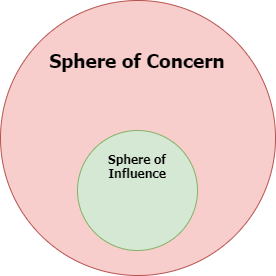Relief from the Pressure to Produce – Part 1

I know you feel it. I know you feel it because I feel it too. The incessant pressure to be productive; and not just humanly, but super-humanly. It is insidious and relentless, fed by a culture that puts a premium on measuring outputs as an indication of success. Be More and Do More are the twin pillars of this culture. Pastors and churches are not immune. The seductive hum of the need to measure our effectiveness and our worth can be felt behind the pastor’s desk, in the church board room and in the seats of our places of worship.
What if it could be different? What if it should be different?
A recent interchange in one of the pastors’ groups I am a part of got me thinking about this important issue again. It’s an issue I definitely resonate with, and the discussion revealed that this is a shared experience. I would like to explore this with you in a brief, three-part series; with the hope of helping us all relieve the pressure to produce.
The first question we need to answer is, “Are we called to produce?”
My first response to that question is, “Of course! Didn’t Jesus say we are to bear fruit? That’s productivity, right?” Actually, on closer inspection, notice that Jesus didn’t call us to produce. He called us to abide – in Him (John 15). Have you noticed that everything about results, productivity and outputs in Scripture is expressed in very organic terms? Consider the Parable of the Sower (Matthew 13), or the Parable of the Seed (Mark 4). Throughout the New Testament our calling to serve, the invitation to participate in the work of God, flows from a living relationship with Jesus through His Holy Spirit.

I wonder if we too often see ourselves as employees whose only value is how much and how fast we can produce results rather than friends and partners in a dynamic and intimate enterprise.
I think that one of the subtle effects of Jesus ministry was to build a truly counter- “productive” culture. His way of life, his interactions with people and his teaching communicated that identity and worth are not measured by doing. Success, according to Jesus, is the outcome of character, not effort. The Parable of the Talents – which comes the closest in any of Jesus teaching to the idea of “productivity” – is really about faithfulness – faithfulness with who we are and what we have been given. Each servant is assigned his or her responsibility. The measure is “Well done, good and faithful servant!”
The idea of different amounts distributed to each person reminds me of a concept I learned (and am still learning) about spheres of influence. It comes from Stephen Covey, and it is represented by a circle within a circle.

The larger circle is my “sphere of concern” – all those things in my work and life that I should give time and attention to – my exhaustive (and exhausting) to do list. It lures me with the siren song of “If I just worked harder, scheduled better, spread myself thinner, I could do more!” The smaller, inner circle is the “sphere of influence” – the places, people and things that I can actually do something about. In fact, they may be the very (only?) things I am called to do something about. Perhaps they are the number of talents I have been given?
The bottom line is we have been called to live in organic connection with Jesus and to be faithful with the sphere of influence He has assigned to us.
Can we actually live like this? I think so. What do you think?
Here is an interesting exercise to begin with. Take a few minutes, think about your sphere of influence, and write down the things that belong there. It might be very revealing.
Next time we will look at identifying the source of the pressure to produce.
If you have questions or would like to know more about PIR Ministries, we would love to hear from you. [email protected]
